The picture that shows how desperate refugees are to enter the EU
The migrant was rushed to hospital after wedging himself behind the car’s engine block and radiator
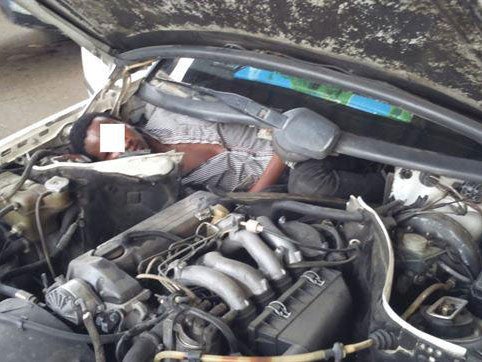
Your support helps us to tell the story
From reproductive rights to climate change to Big Tech, The Independent is on the ground when the story is developing. Whether it's investigating the financials of Elon Musk's pro-Trump PAC or producing our latest documentary, 'The A Word', which shines a light on the American women fighting for reproductive rights, we know how important it is to parse out the facts from the messaging.
At such a critical moment in US history, we need reporters on the ground. Your donation allows us to keep sending journalists to speak to both sides of the story.
The Independent is trusted by Americans across the entire political spectrum. And unlike many other quality news outlets, we choose not to lock Americans out of our reporting and analysis with paywalls. We believe quality journalism should be available to everyone, paid for by those who can afford it.
Your support makes all the difference.A picture of an African man trying to smuggle himself into Spain by squeezing himself behind a car engine shows the desperate lengths migrants are taking to flee persecution, civil war and poverty.
The man was discovered by Spanish boarder police in a bad state of health due searing temperatures and petrol fumes from cramming himself behind the car’s engine block and radiator.
The refugee who is reportedly from Guinea in West Africa was making his way from Morocco into the Spanish enclave of Ceuta, one of two North African territories owned by Madrid, according to Europa Press.
A second refugee, also from Guinea, was discovered behind one of the seats inside the car.
The pair, identified only by their initials T.D. and A.B, have been taken to a local hospital suffering from cramp and dehydration. The car’s driver has been arrested.
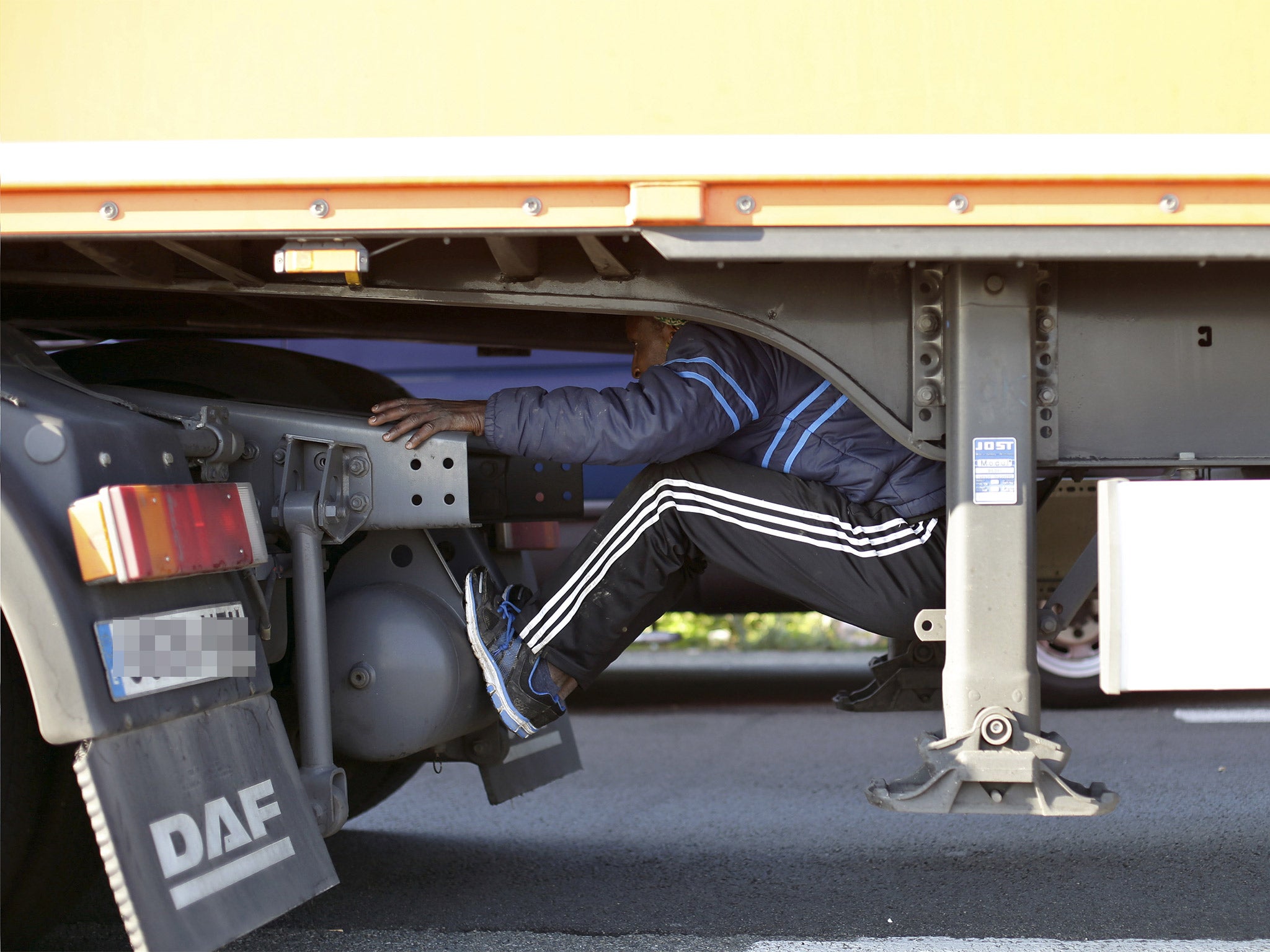
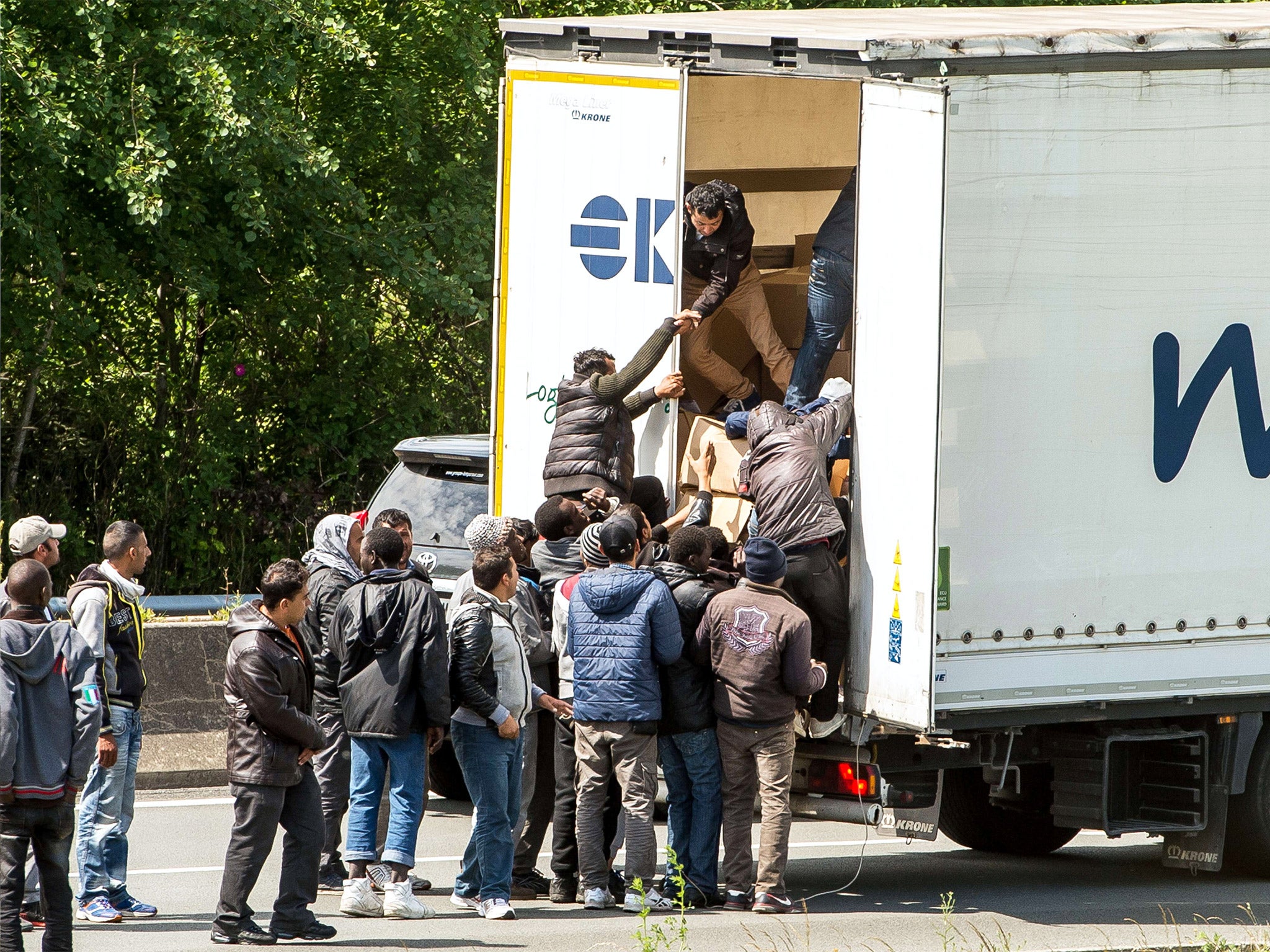
Doctors have said that smuggling attempt could have been fatal if the refugees had been left inside the restricted spaces any longer.
The number of people migrating to European countries from Africa and the Middle East, including Syria, Eritrea, Iraq and Afghanistan, has risen dramatically in recent months, with many escaping conflict as refugees.
In recent weeks, there have been flashpoints between refugees and police in Greece, Serbia, Macedonia and, most recently, Hungary.
On Tuesday, hundreds of migrants were stranded in Budapest after police stopped trains leaving for Austria and Germany in a bid to stop them travelling onwards.
Authorities reportedly halted westbound departures from Keleti station for more than an hour this morning, with an announcement over its loudspeakers saying that the measure would be in effect for an undetermined period of time.
Hundreds of migrants and asylum seekers were ordered to leave the building, including many who had spent hundreds of euros on tickets.
Photos showed men and women, some with young children, waving their tickets in the air outside the station as they chanted "Germany, Germany".
Although the station was later reopened, migrants were barred from entering by lines of police with batons and riot helmets and they were left sitting on the pavement outside, facing a temporary blockade.
An emergency meeting has been called for 14 September to address the crisis, in which over 300,000 people have cross the Mediterranean this year and thousands more are bellived to be crossing to Europe by land through the Balkans.
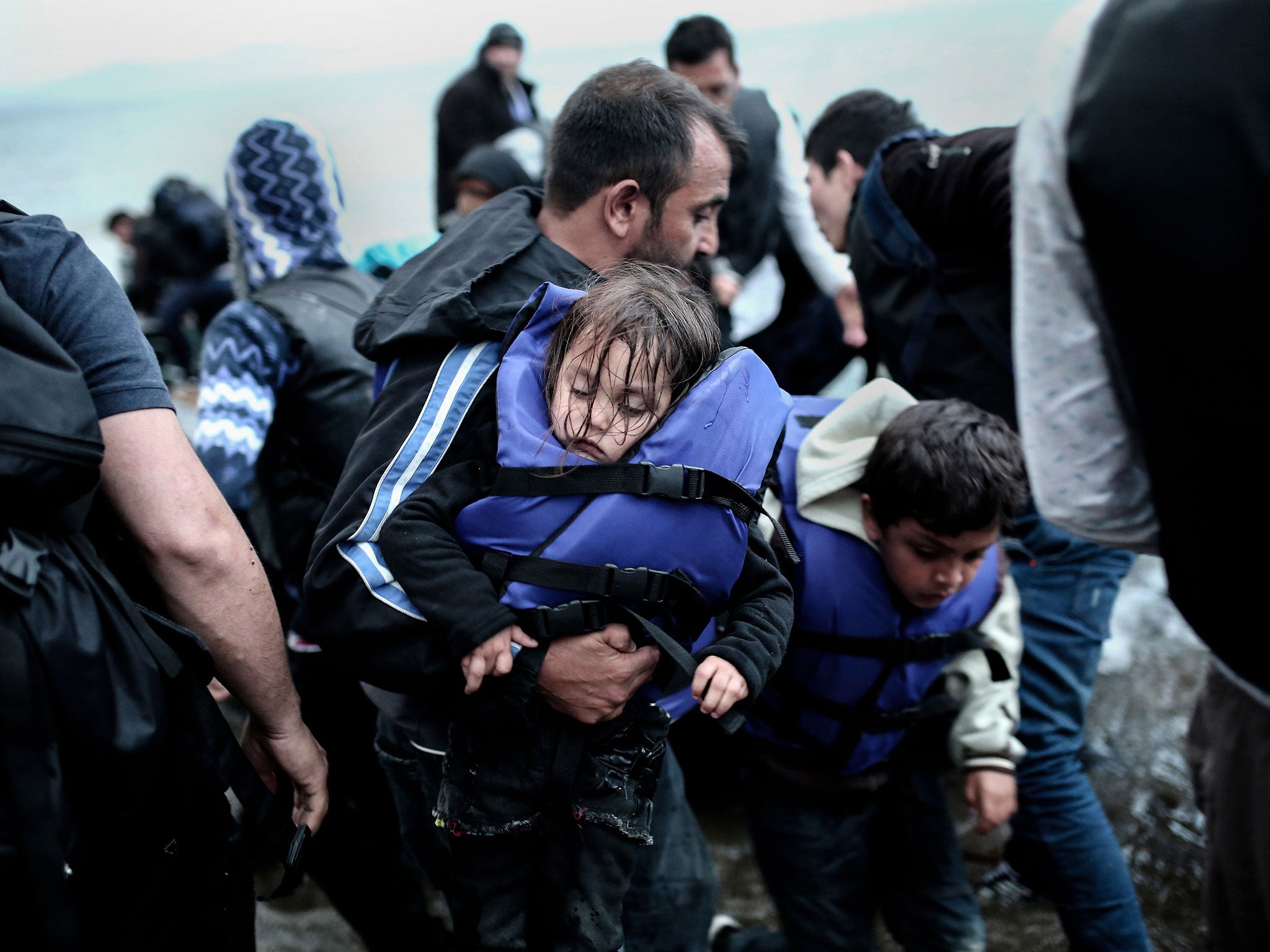
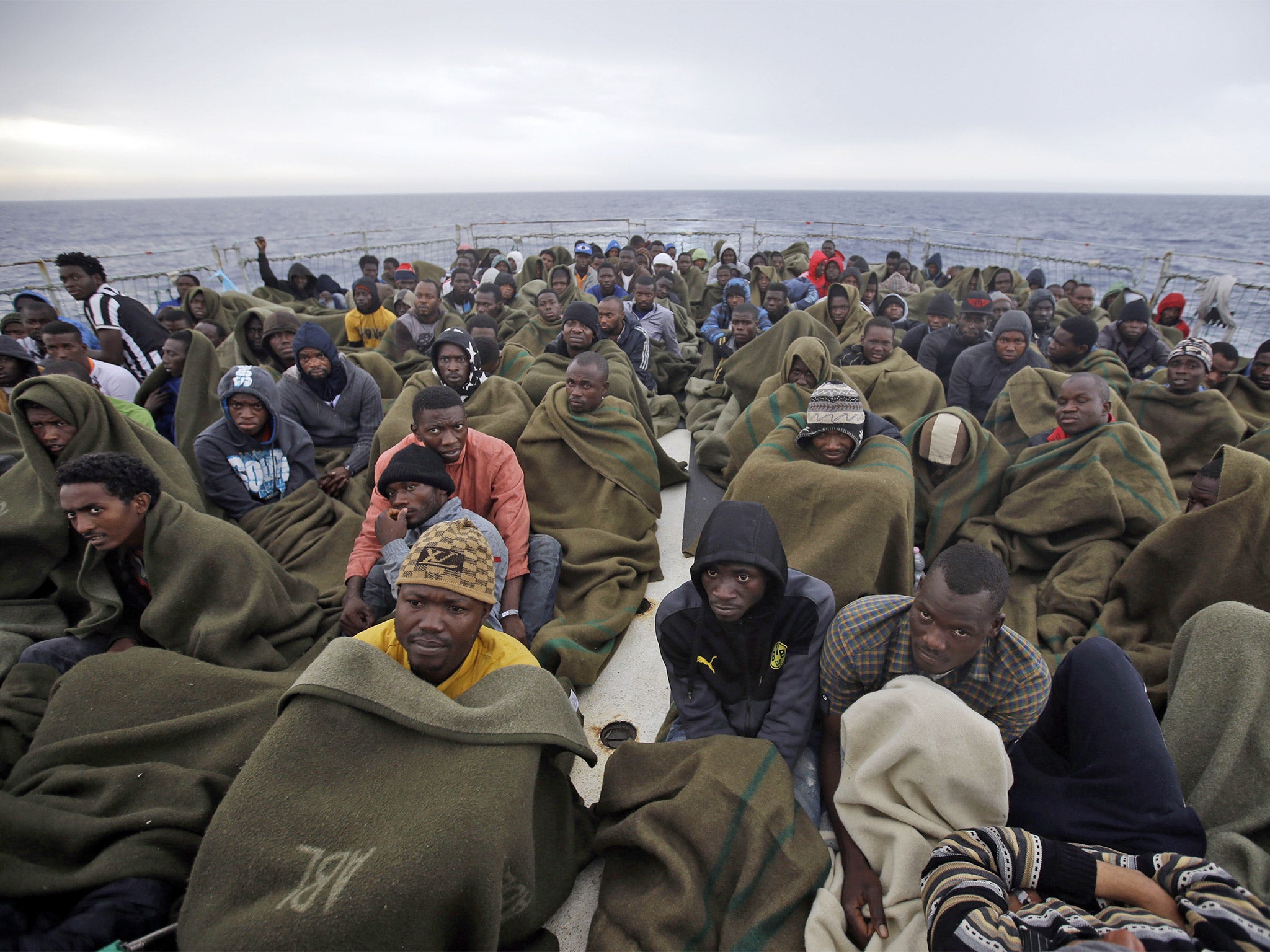
Several EU states, including many in eastern Europe rejected proposals to distribute 40,000 asylum seekers according to a new quota system in June.
Hungary, a main gateway to the EU for asylum seekers from countries including Syria and Afghanistan, received international criticism for erecting a 100 mile-long barbed wire fence along its border with Serbia.
German Chancellor Angela Merkel has warned that the “Europe we want” will fade if some countries continue to demand the reintroduction of border controls rather than taking in refugees.
Germany expects to receive more than 800,000 refugees this year, more than any other EU nation.
Join our commenting forum
Join thought-provoking conversations, follow other Independent readers and see their replies
Comments